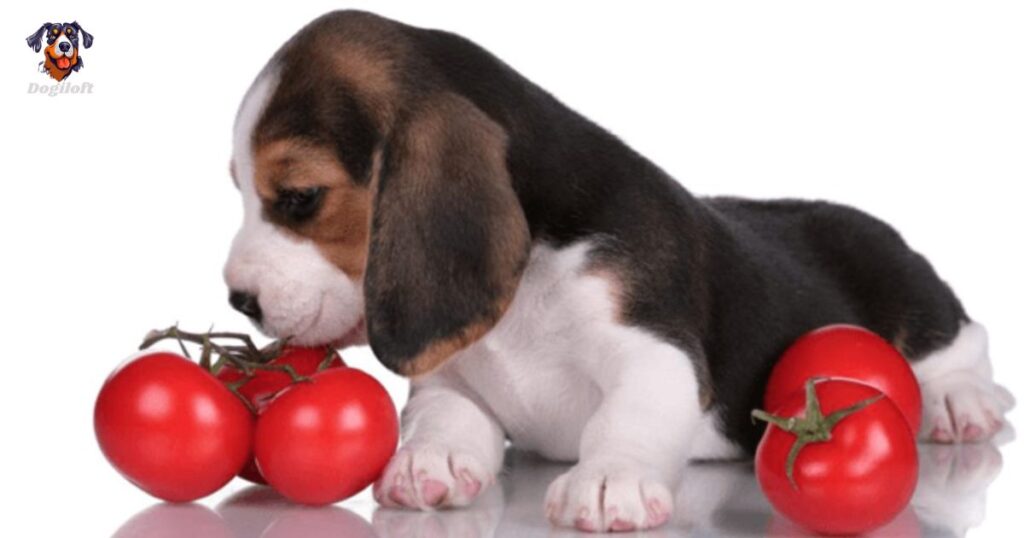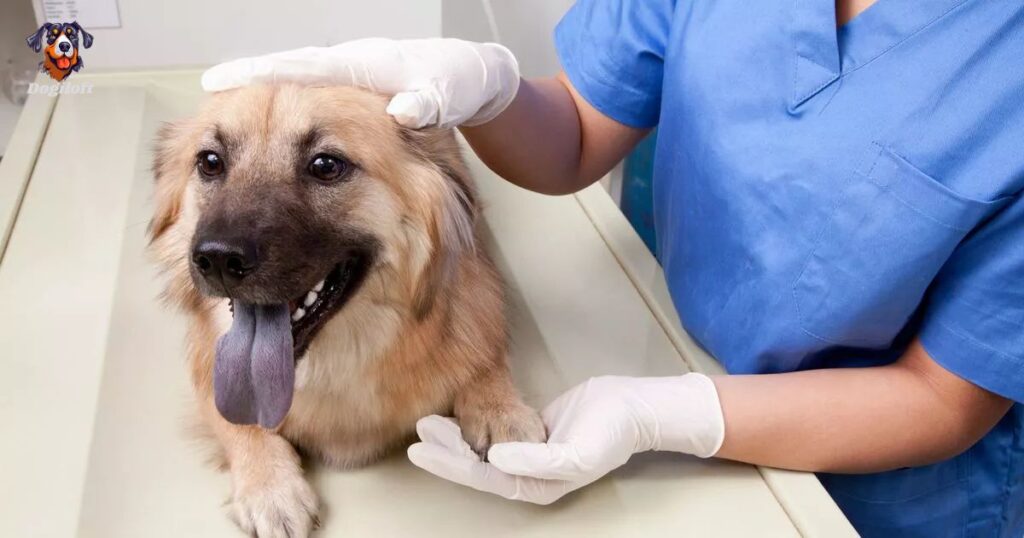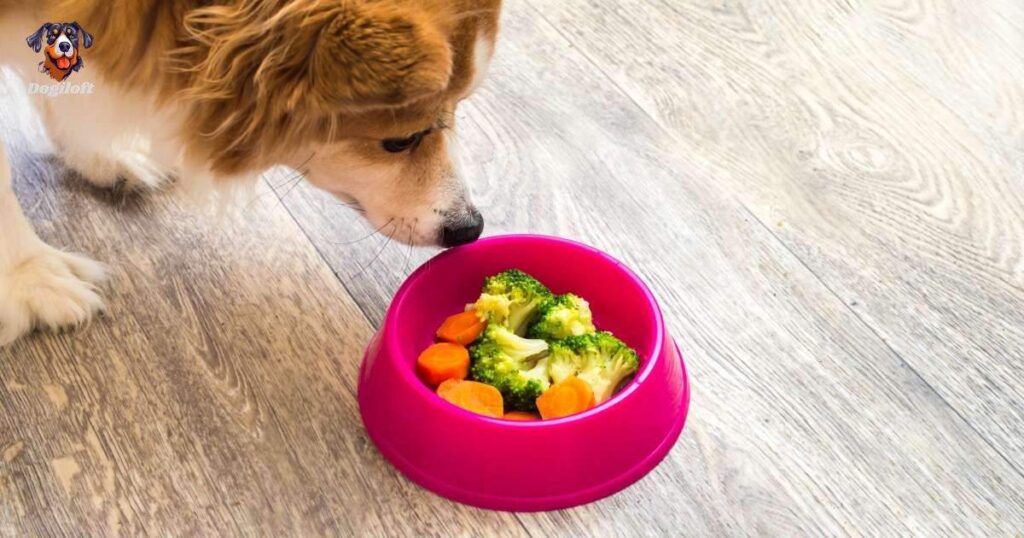Dogs Eat Tomatoes are one of the tastiest vegetables for humans, but can our canine companions eat them too? The short answer is yes, dogs can eat tomatoes, provided their owners understand the risks involved.
Tomatoes belong to the nightshade family, and some parts of this plant contain substances that can be toxic to dogs if consumed in large amounts. While tomato poisoning is rare, it can occur, particularly if your pet manages to get into unripened tomatoes. It’s crucial to know which parts of the tomato are safe for dogs to consume.
Pro Tip: Curious dogs may swallow food that could be dangerous. Pet insurance can help cover unexpected vet bills related to poison ingestion and other accidents. Having pet insurance provides peace of mind, allowing you to focus on getting the best treatment for your furry friend without worrying about the costs.
Health benefits of tomatoes for dogs
Tomatoes are packed with nutrients that provide several health benefits to dogs, similar to humans.
Better Eyesight
Tomatoes are rich in vitamin A and beta-carotene, both of which support eye health. Vitamin A deficiency can cause issues like night blindness and cataracts. Adding tomatoes to your dog’s diet may help decrease these eye-related problems and delay macular degeneration. Beta-carotene also acts as a strong antioxidant, maintaining a shiny coat and healthy skin.
Enhanced Immunity
Ripe tomatoes contain lycopene, a powerful antioxidant that gives tomatoes their red color and protects the body from harmful free radicals. Lycopene helps strengthen the immune system and protects cells in the heart, lungs, and muscles. This nutrient also promotes bone strength and may reduce the risk of heart disease and stroke.
Healthy Coat and Skin
Vitamins A and C in tomatoes support a healthy coat and skin while boosting the immune system. These vitamins aid in joint health, bone strength, and proper muscle development.
Improved Cardiovascular Health
Tomatoes have high levels of potassium, a mineral that regulates cholesterol, blood pressure, and neural functions. This mineral also helps stabilize blood sugar levels and supports heart health in dogs.
Tomatoes are also rich in iron, crucial for healthy blood circulation, and vitamin K, which supports blood clotting. In moderation, ripe tomato slices can be a safe, nutritious treat for your dog.
Can puppies eat tomatoes?

Puppies can eat tomatoes occasionally, but they are not essential. Tomatoes do not provide much nutritional value for puppies. They should not be a regular part of their diet. However, giving a small piece as a treat is fine. Make sure the tomato is ripe and safe for them. Always avoid giving the green parts of the plant.
When feeding tomatoes to your puppy, cut them into small pieces. This helps with digestion and prevents choking. Smaller pieces also help control portion sizes better. Keep an eye on your puppy after giving them tomatoes. If they show any signs of discomfort, stop immediately. Always consult your vet if you’re unsure about new foods: What Is the Lifespan of a Labradoodle?
Are tomatoes bad for dogs?
Tomatoes belong to the nightshade family of vegetables (Solanaceae), which also includes eggplants and green potatoes. These plants contain alpha tomatine and solanine, two compounds that can be toxic to dogs. The highest concentrations of solanine are found in the green parts of the tomato plant, such as the leaves, stems, and unripe fruit.
Ripe tomatoes contain very low levels of solanine, making them generally safe for dogs to eat. However, it’s essential to avoid feeding your dog unripe (green) tomatoes, as they contain much higher amounts of solanine. If you grow tomatoes in your garden, be vigilant, as dogs may be tempted to chew on the toxic green parts.
Like other human foods, tomatoes can cause allergic reactions in pets, even when ripe. Common signs of an allergy include sneezing, coughing, hives, diarrhea, gas, or itchy rashes. If you notice any of these symptoms, discontinue feeding tomatoes to your pet and consult your veterinarian.
In rare instances, an allergic reaction can escalate to anaphylaxis, a serious condition that may be life-threatening. Symptoms of a severe allergic reaction can include swelling, hives, and difficulty breathing. If you observe these signs, seek emergency veterinary care immediately.
Some dogs have medical conditions, such as gastrointestinal (GI) issues or acid reflux, that tomatoes could aggravate. Always consult your veterinarian before introducing any human food into your dog’s diet to ensure it is safe based on their health history.
Signs of Tomatine Poisoning
If a dog eats large quantities of the green parts of the tomato plant, they may experience the following symptoms
- Vomiting
- Diarrhea
- Weakness
- Lethargy
- Loss of coordination
- Confusion
- Loss of appetite
- Increased salivation
- Dilated pupils
- Drowsiness
- Irregular heart rate
- Tremors
- Seizures
Pro Tip: Accidental poisoning is a common reason for emergency vet visits, and treatments can be costly. Having a comprehensive pet insurance policy ensures your dog gets the best care without financial strain, so you can focus on their recovery rather than worrying about expenses.
Treatment of tomatine poisoning in dogs

Tomatine poisoning in dogs occurs when they ingest parts of tomato plants (Solanum lycopersicum), specifically the green, unripe fruit, stems, or leaves, which contain tomatine, a glycoalkaloid toxin. Although ripe tomatoes contain only trace amounts of tomatine and are generally safe, unripe tomatoes and other parts of the plant can be toxic to dogs when consumed in significant quantities.
If you notice any symptoms of tomato poisoning in your dog, such as vomiting, diarrhea, or lethargy, take your pet to the vet as soon as possible. The veterinarian will evaluate your dog and determine whether inducing vomiting is safe and necessary. This procedure is best done at the veterinary office, where your pet can be closely monitored throughout the process.
Your vet may also recommend additional treatments, such as fluid therapy, especially if your pet has diarrhea or vomiting. This therapy helps to flush out toxins and address dehydration.
Tomato poisoning in dogs is rare, and most dogs recover fully. However, the clinical signs mentioned can also indicate other serious health issues. Therefore, it is crucial to contact your veterinarian if your pet shows any of these symptoms.
Can dogs eat cooked tomatoes?
Yes, dogs can eat cooked tomatoes, but there are some things to keep in mind:
Preparation
Make sure to cook the tomatoes without adding any other ingredients, such as salt, sugar, garlic, or onions. These ingredients can be harmful to dogs.
Moderation
Tomatoes should be given as a treat and not replace a balanced, nutritious diet. Start with small amounts to see how your dog reacts.
Ripe tomatoes
Unripe tomatoes contain high levels of solanine, which can be toxic to dogs. As tomatoes ripen, the concentration of solanine decreases.
Tomato-based products
Avoid giving your dog tomato-based products like pizza or pasta sauce, as they often contain additives and preservatives that can be toxic to dogs.
Ketchup
Ketchup condiments often contain ingredients like onion powder, garlic powder, cinnamon, vinegar, sugar, salt, and sometimes xanthan gum, which are not good for dogs.
Allergies
Dogs can be allergic to tomatoes, even if they are ripe. Signs of an allergic reaction include sneezing, coughing, hives, diarrhea, gas, or itchy rashes.
Can dogs eat cherry tomatoes and grape tomatoes?
Tomatoes come in a wide range of varieties, including grape and cherry tomatoes, among others. If you’re wondering whether any of these types are more or less toxic to your pets, the good news is that they are not.
Grape tomatoes, cherry tomatoes, beefsteak tomatoes, and other ripe, red varieties are safe for dogs to eat in moderation. However, it’s essential to ensure that any green parts, such as the stems and leaves, are removed, as these can be harmful.
Can dogs eat canned tomatoes?
Canned tomatoes often contain high sodium levels, which can lead to dehydration in large amounts. It’s better to offer ripe, fresh tomatoes instead. If your dog does consume canned tomatoes, watch for signs like increased urination, excessive thirst, fever, loss of appetite, or nausea.
If you choose canned tomatoes, look for organic options without added ingredients, as added salts and sugars can be harmful to dogs.
What about sun-dried tomatoes?
“If the sun-dried tomatoes include other ingredients, such as garlic or onion, you should not feed them to your pet, as these can be harmful. If the sun-dried tomatoes contain only safe ingredients, you can add one or two finely chopped pieces to your dog’s food or give them directly from the jar.”
How to feed tomatoes to dogs

- Veterinarian Approval: Always consult your veterinarian before introducing tomatoes to your dog’s diet. Ensure they confirm it’s safe for your specific pet.
- Choose the Right Tomatoes: Opt for ripe, red tomatoes. Avoid any green or unripe tomatoes, as they contain solanine, which can be toxic.
- Remove Harmful Parts: Before serving, remove the leaves, vines, and stems of the tomato plant, as these parts can be harmful to dogs.
- Thorough Washing: Rinse tomatoes well, particularly if they are not organic. Non-organic tomatoes may be treated with pesticides and herbicides that could harm your dog.
- Serve Fresh and Simple: Offer fresh tomatoes without any additives like salt or seasonings. Avoid processed tomato products, such as soups or sauces, unless you check the ingredient list for harmful components.
- Monitor Tomato Plants: If you have tomato plants, ensure your dog cannot access them. Prevent them from eating unripe tomatoes or the green parts of the plants. For indoor plants, keep them in pots elevated off the ground; for outdoor gardens, consider fencing off the area.
- Immediate Action if Ingested: If your dog accesses the tomato plants and consumes any harmful parts or unripe tomatoes, contact your veterinarian immediately. Watch for symptoms such as gastrointestinal upset, and don’t hesitate to seek professional advice if you notice anything concerning.
FAQs
How many tomatoes can a dog eat safely?
Dogs can safely eat small amounts of ripe tomatoes as an occasional treat, but it’s best to limit them to one or two slices to avoid potential stomach upset.
Are yellow tomatoes bad for dogs?
Green tomatoes are bad for dogs. However, any ripe tomato — whether red, yellow, or purple — is safe for dogs to eat.
Can Dogs Eat Tomato Sauce?
Dogs should not eat tomato sauce, especially if it contains ingredients like onions, garlic, or high levels of salt, which can be toxic or harmful to them; plain, cooked tomato sauce in small amounts may be acceptable, but it’s best to consult your vet.
can dogs eat tomatoes off the vine
No, dogs should not eat tomatoes off the vine as the green parts (stems, leaves, and unripe tomatoes) contain solanine which is toxic to them, though ripe tomato flesh is safe in moderation.
Conclusion
In conclusion, while ripe tomatoes can be a nutritious and enjoyable treat for dogs, it’s essential to be cautious. Always avoid feeding your dog unripe tomatoes and the green parts of the plant, which can be toxic. Consulting your veterinarian before introducing any new foods into your dog’s diet is crucial to ensure their health and safety.
By being mindful of the risks and serving ripe tomatoes in moderation, you can enhance your dog’s diet with beneficial nutrients like vitamins A and C, and antioxidants. Always monitor your dog for any adverse reactions and enjoy the journey of exploring safe food options together!








